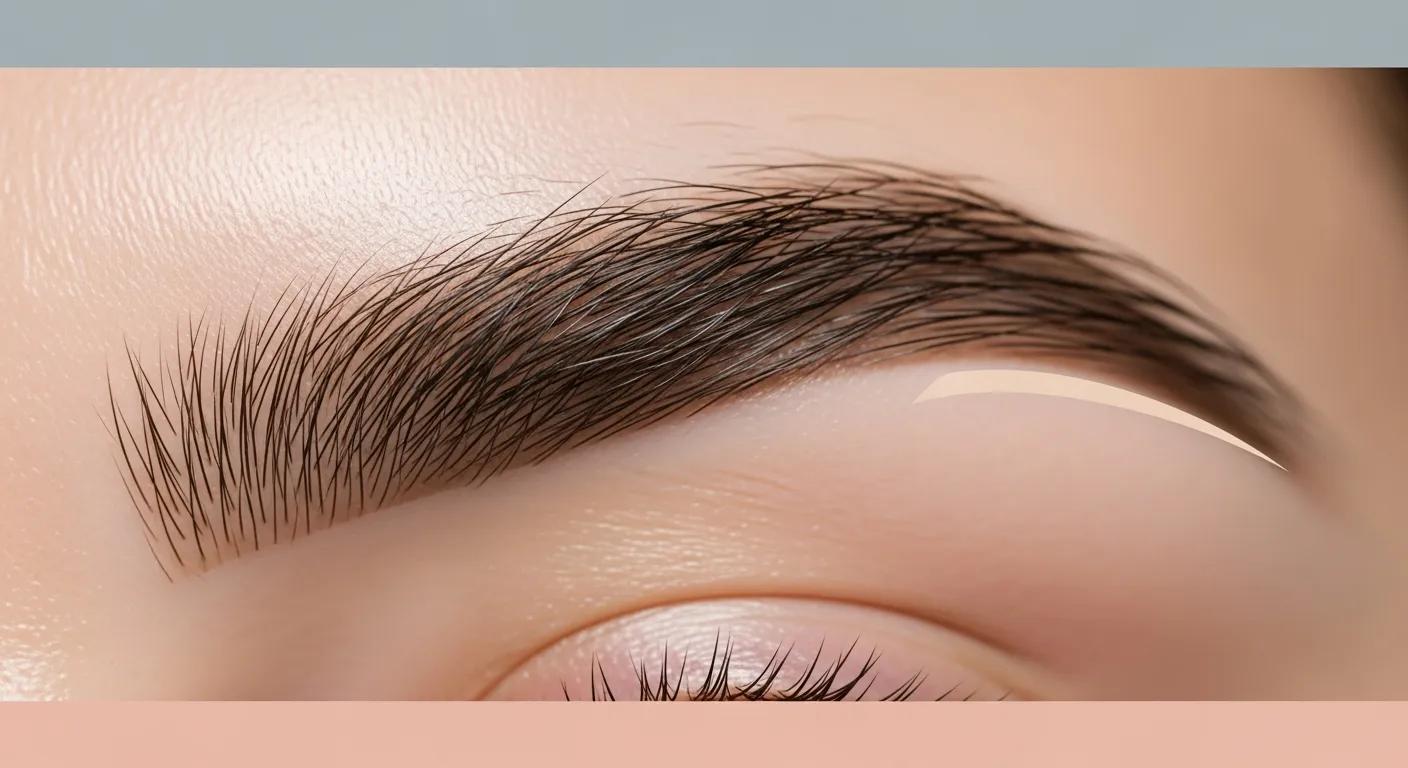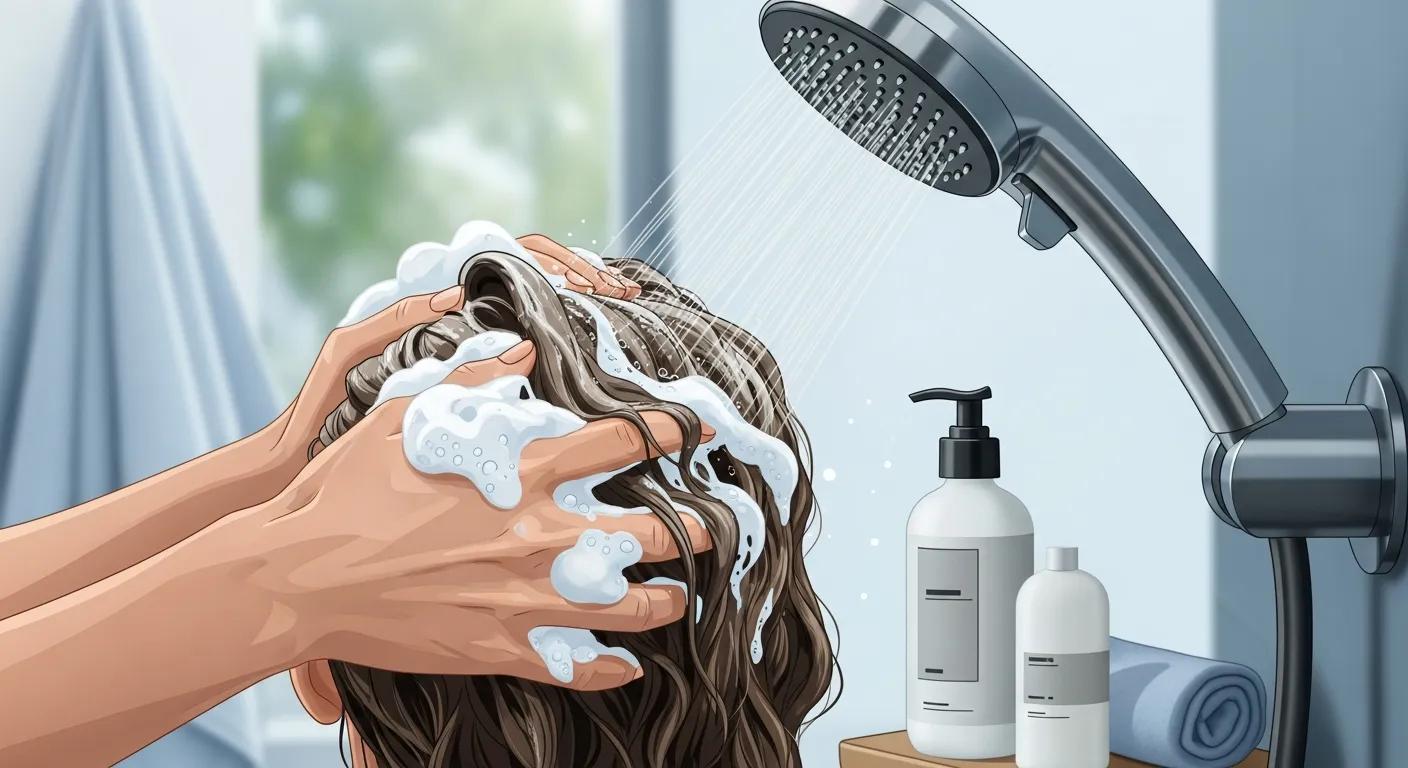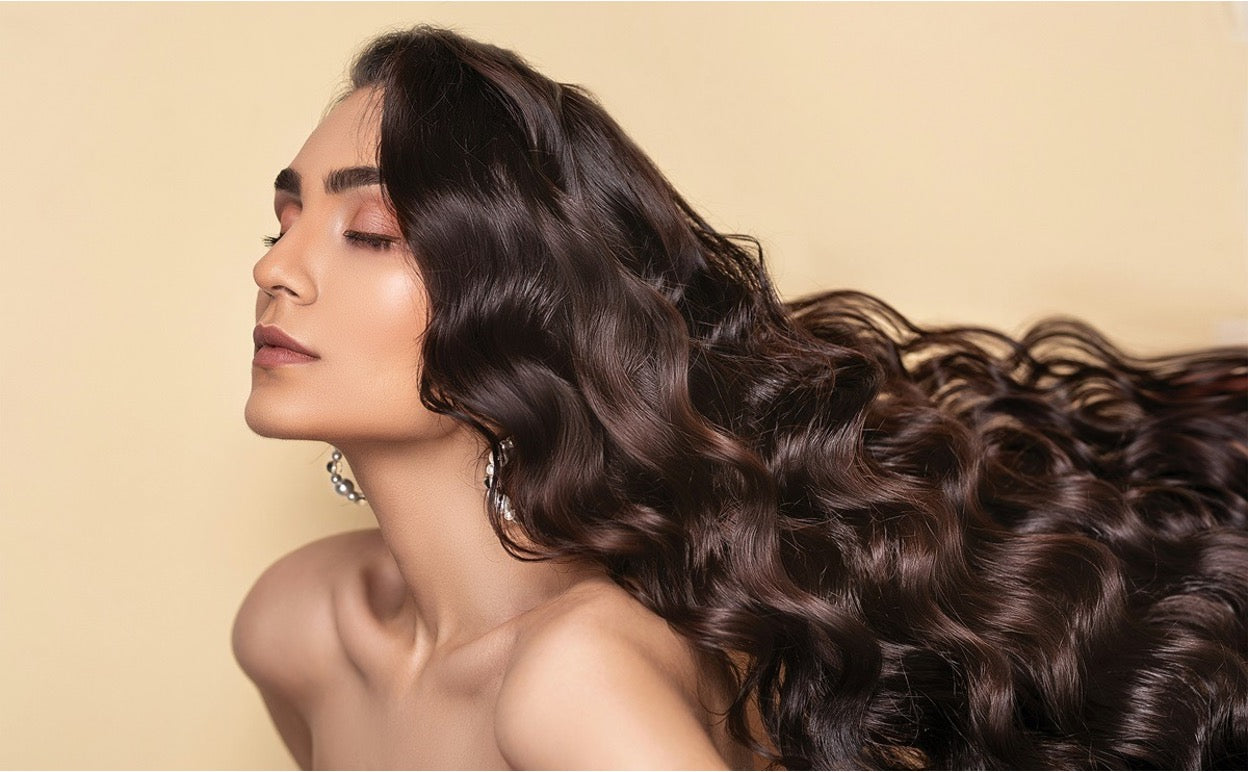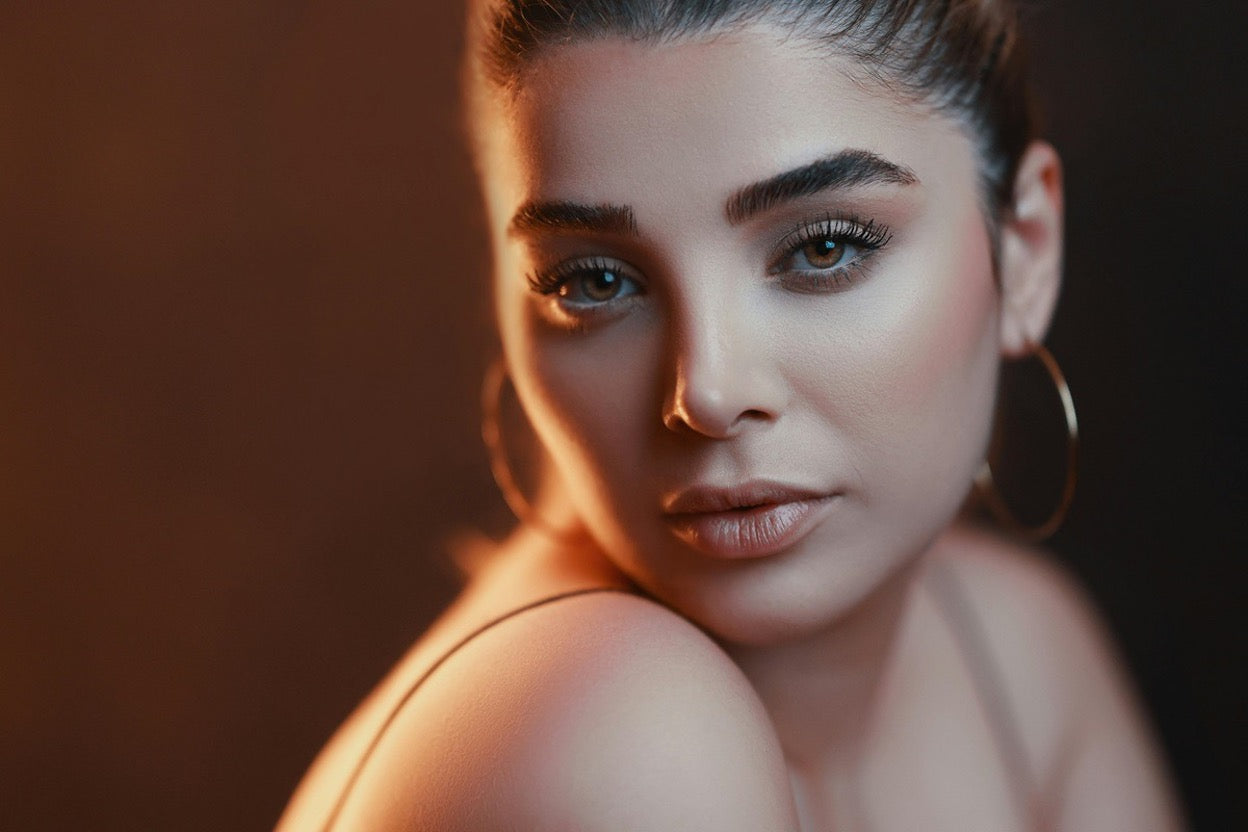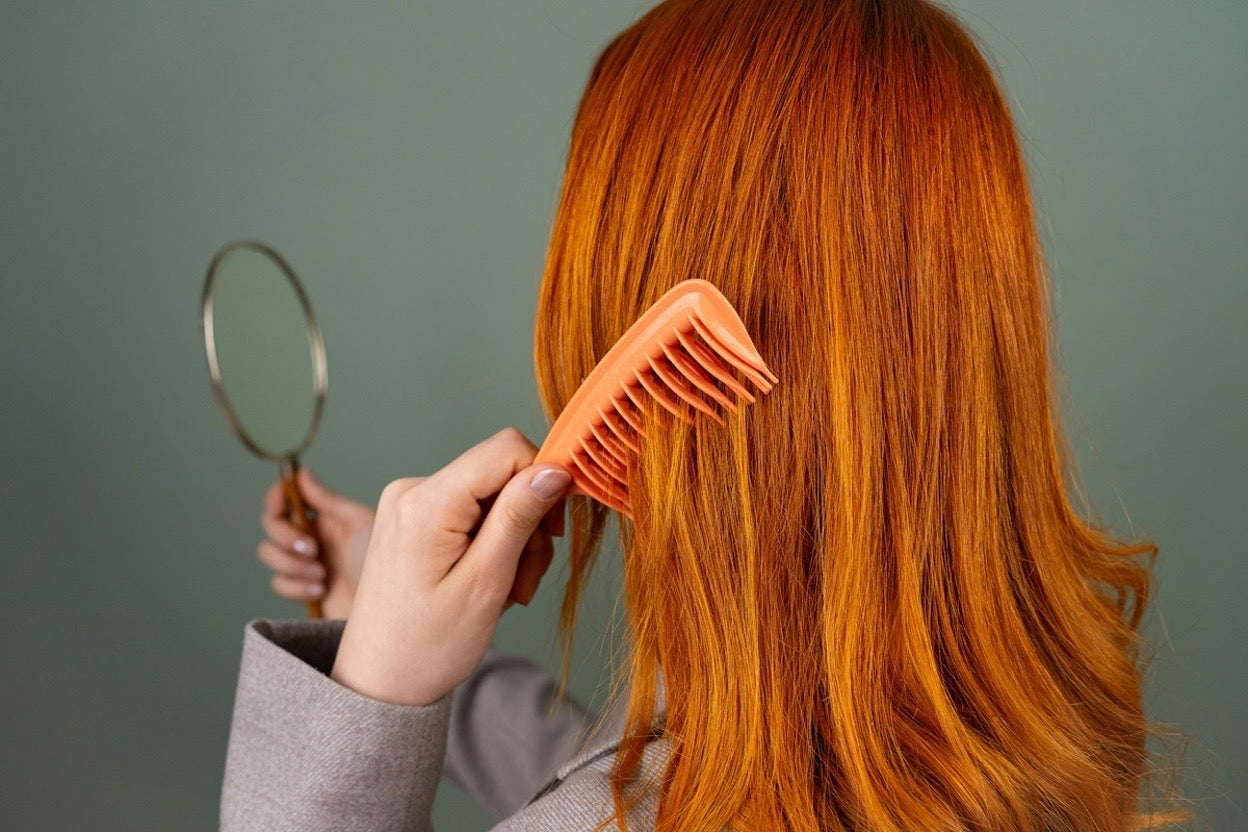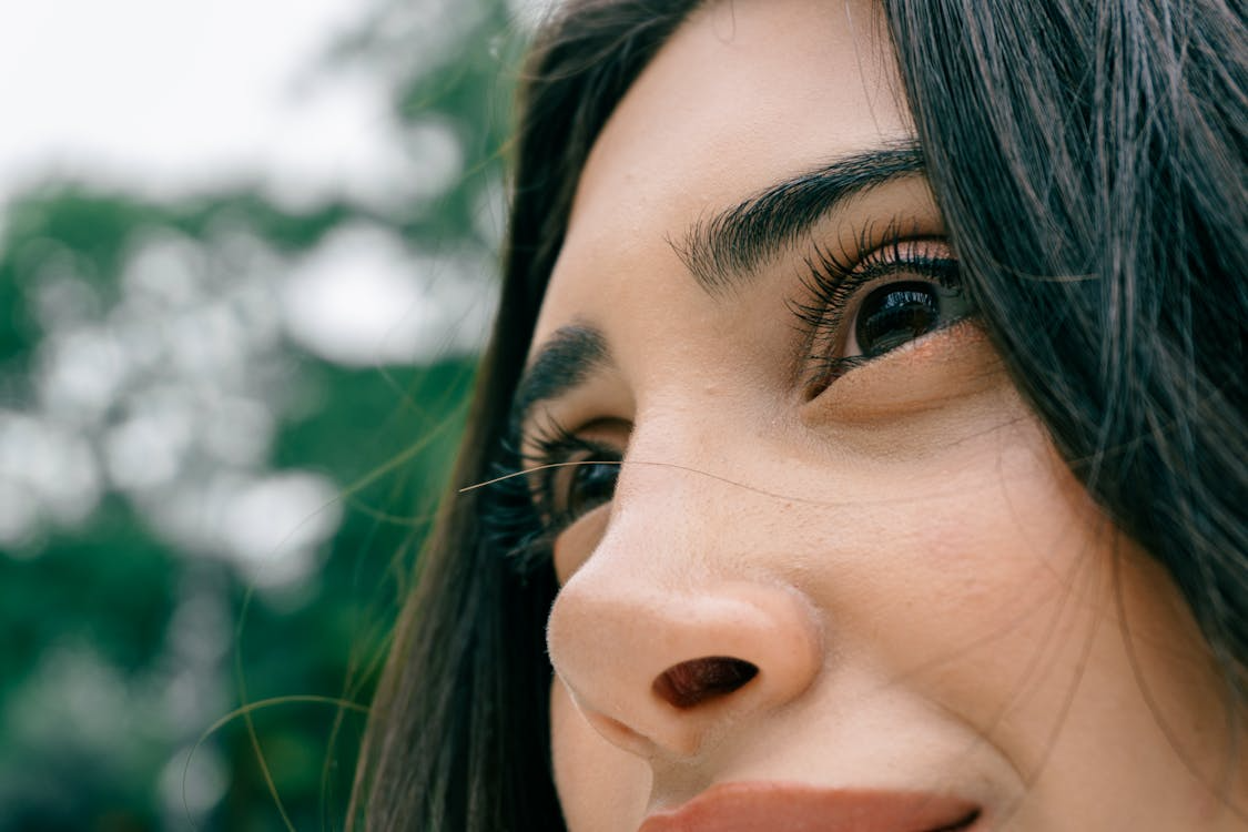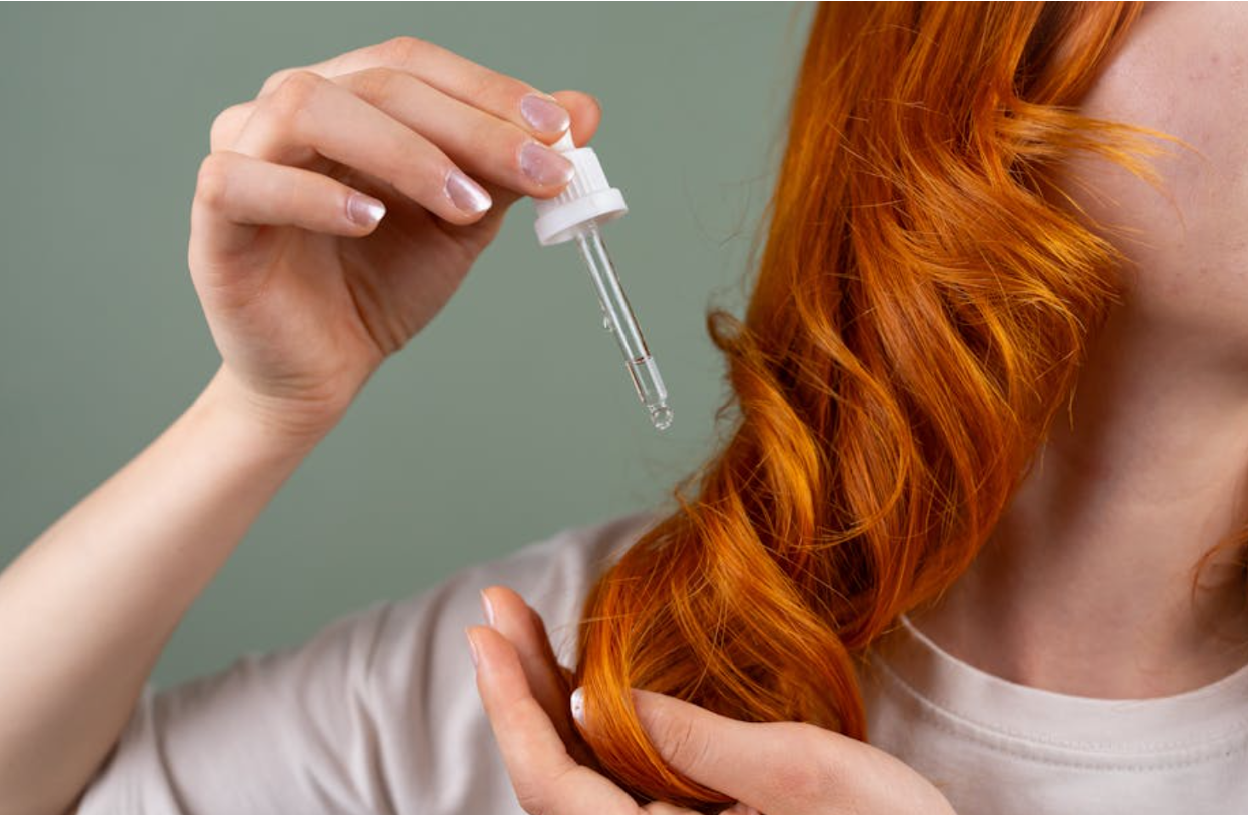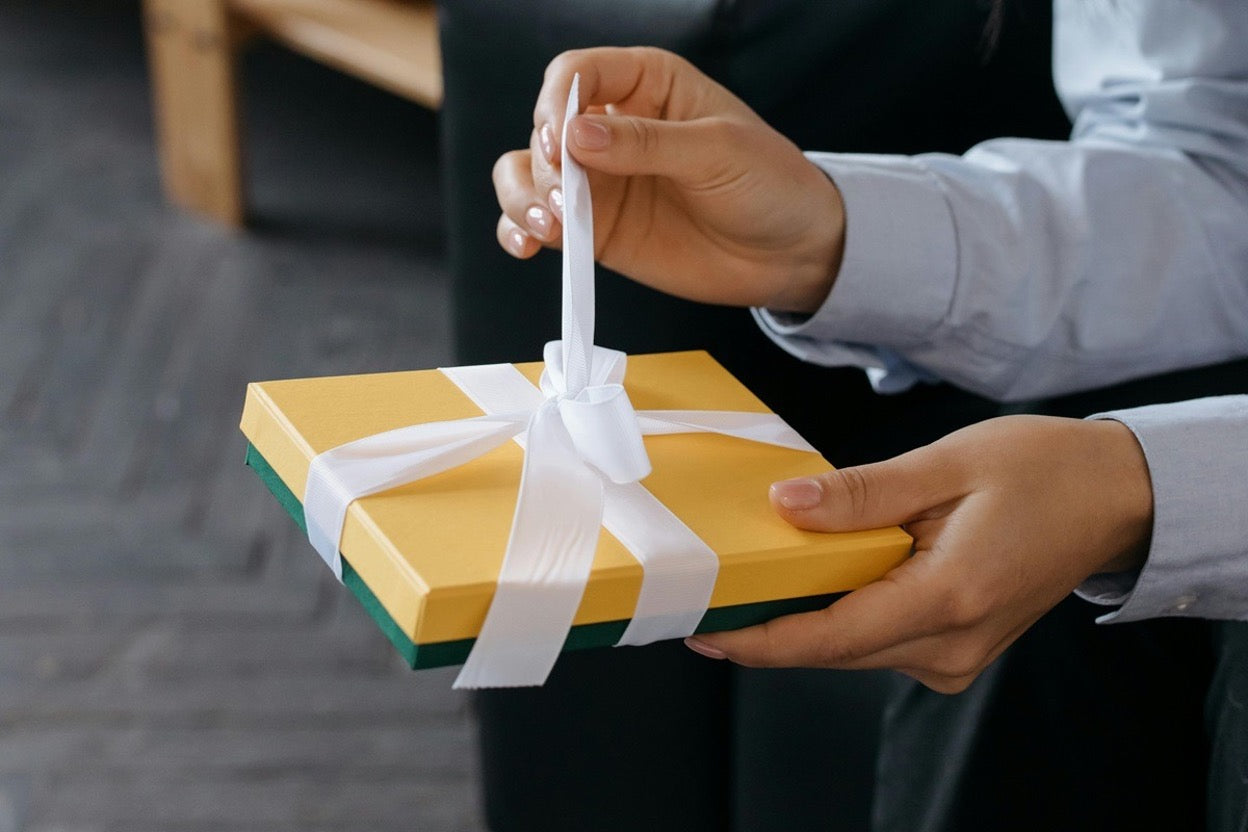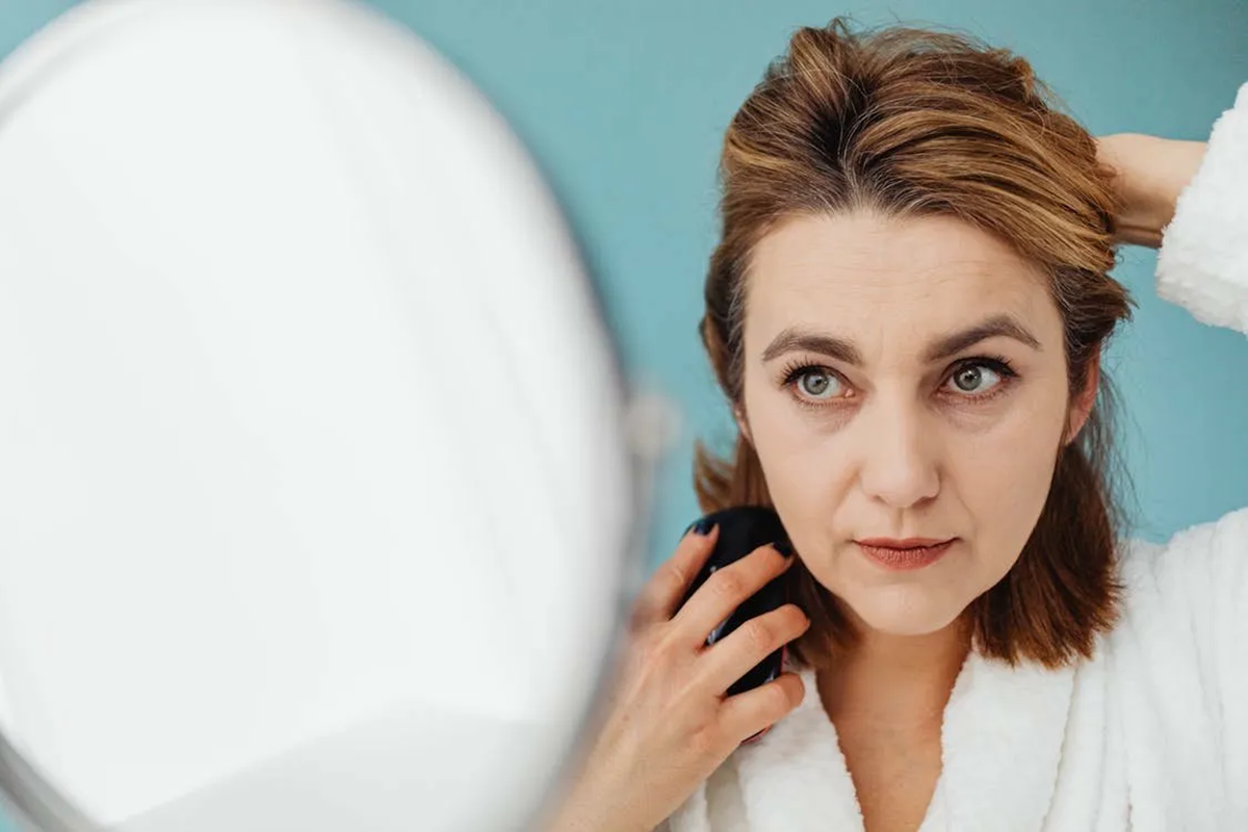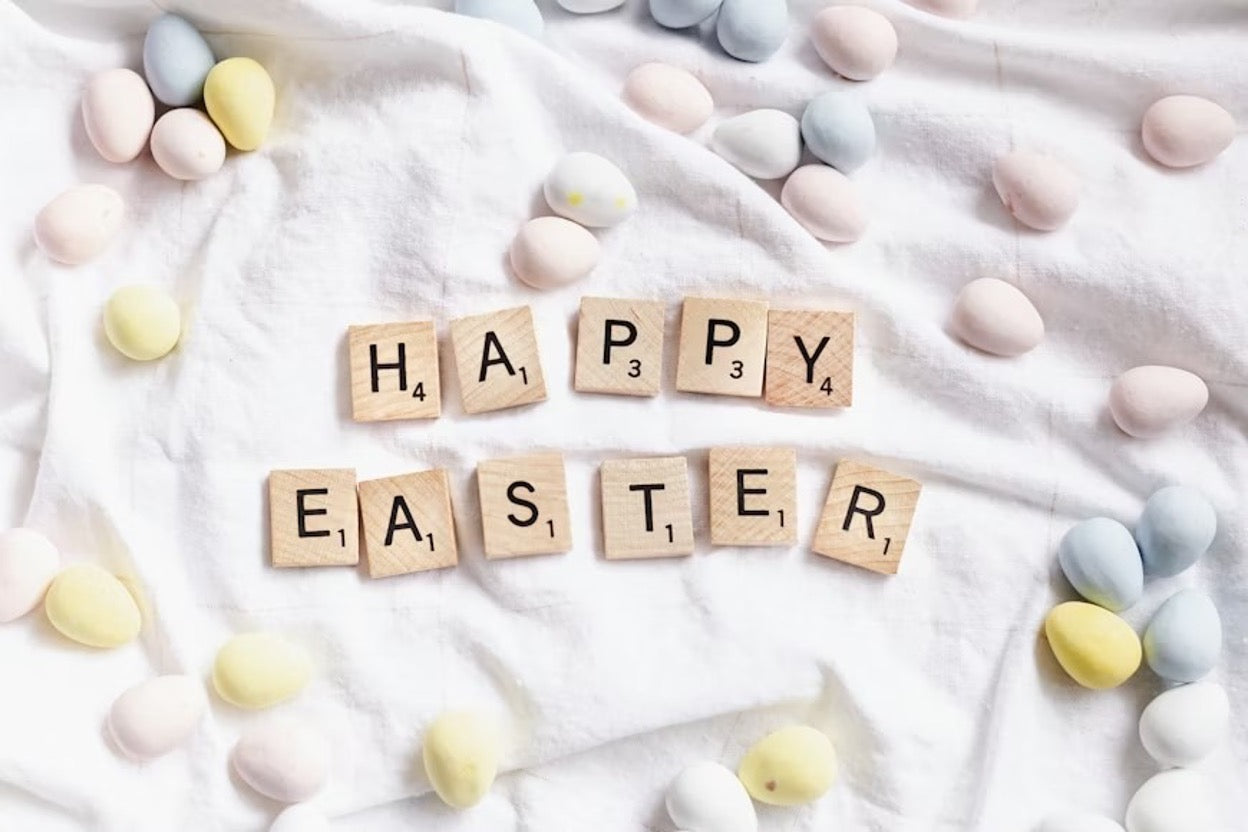Hair Loss Due To Iron Deficiency: Why Does it Happen & Treatment
BY TRYBELLO
May 23, 2025

Key Takeaways
- Iron deficiency directly impacts hair health by reducing oxygen delivery to hair follicles, leading to weakened strands and increased shedding.
- Early detection through symptoms like fatigue, pale skin, and brittle nails can prevent significant hair loss.
- A balanced diet rich in iron-containing foods paired with vitamin C enhances absorption and supports hair growth.
- Combining proper iron intake with specialized hair care products can accelerate recovery from deficiency-related hair loss.
- Trybello's Hair Helper Spray contains key ingredients like caffeine and biotin that work synergistically with your body to promote thicker, fuller hair growth.
Iron's Role in Hair Health
Iron is a crucial mineral that supports various bodily functions, including hair health. It plays a big role in the production of hemoglobin, a protein in red blood cells that carries oxygen throughout the body. This oxygen is vital for cell growth and repair, including the cells in your hair follicles.
Why Iron Is Vital for Hair
Your hair needs nutrients to grow and stay strong, and iron is one of the most important. Without enough iron, your hair follicles don't get the oxygen they need to function properly. This can cause your hair to become brittle, weak, and more prone to falling out.
Hemoglobin and Hair Follicle Support
Hemoglobin is like a delivery service for oxygen in your body. It ensures that every cell, including those in your scalp, receives the oxygen it needs. This is crucial for the health of your hair follicles, which are responsible for producing hair. If these follicles are starved of oxygen, hair growth slows down, and hair loss can occur.
“Doctor-Approved Natural Spray Rapidly Boosts Growth & Thickness.
Why 100,000+ Women Are Switching to The TryBello All-Natural Solution!"
Join over 100,000 happy customers who’ve transformed their hair with our natural, doctor-formulated spray—rated 4.8/5 by more than 40,000 real users.
Proven Natural Ingredients
- • Caffeine Extract – Naturally blocks DHT and boosts blood flow to hair follicles
- • Biotin – Absorbs directly through the scalp for maximum results—no pills needed
- • Castor Oil – Soothes inflammation and locks in deep, lasting moisture
- • Rice Water Extract – Packed with proteins and minerals to strengthen hair and reduce shedding
Get Visible Results in 12 Weeks
- • Up to 45% increase in hair thickness
- • Reduces shedding and unclogs hair-draining nightmares
- • Supports regrowth in thinning areas
- • Leaves hair soft, shiny, and full of life
Ironclad 120-Day Growth Guarantee
No results after 4 months? Get 100% of your money back—no questions asked.


★★★★★
I started using this twice a day because I noticed my hairline receding. Didn’t pay attention to track results, now my stylist told me my hair has grown a lot since my last root touch up. I'm impressed! - Bailey

How Iron Deficiency Leads to Hair Loss
Mechanism Behind Hair Shedding
When hair follicles don't receive enough oxygen, they enter a resting phase, known as the telogen phase, prematurely. During this phase, hair strands become loose and eventually fall out. This can result in noticeable hair thinning or shedding.
Besides that, iron deficiency can also affect the production of keratin, a protein that strengthens hair strands. Without enough keratin, hair becomes more prone to breakage and damage, further contributing to hair loss.
Comparing with Other Hair Loss Types
Hair loss due to iron deficiency can mimic other types of hair loss, such as genetic male- and female-pattern baldness. However, unlike genetic hair loss, which typically occurs in specific patterns, iron deficiency-related hair loss can be more diffuse, affecting the entire scalp evenly.
Differentiate between these types because the treatments vary significantly. While genetic hair loss might require medication or surgical interventions, iron deficiency hair loss can often be reversed through dietary changes and supplements.
Connection with Anemia
Anemia, a condition characterized by low red blood cell count, is often linked to iron deficiency. When your body doesn't have enough iron to produce hemoglobin, it can't make enough healthy red blood cells, leading to anemia.
Hair loss is a common symptom of anemia because, without enough red blood cells, your hair follicles don't receive the oxygen and nutrients they need to thrive. Addressing anemia by boosting iron levels can help restore hair growth and overall health.
Detecting Iron Deficiency

Spotting iron deficiency early can prevent further hair loss and improve your overall well-being. The first step is recognizing the symptoms and seeking medical advice.
Common Symptoms
Iron deficiency doesn't always shout its presence; sometimes, it whispers through subtle symptoms. Fatigue is often the first sign. You might feel unusually tired or weak, even after a full night's sleep. This is because your body isn't transporting oxygen efficiently due to low hemoglobin levels.
Another common symptom is pale skin. Without enough red blood cells, your skin may lose its usual glow. You might also notice brittle nails and hair, as these are among the first areas to show signs of nutrient deficiencies. Shortness of breath, dizziness, and cold extremities are also indicators that your iron levels might be low.
Understanding Ferritin Levels
Ferritin is a protein that stores iron in your body, acting like a reservoir. When doctors assess iron deficiency, they often look at ferritin levels. Low ferritin levels indicate that your body's iron stores are depleted, which can lead to hair loss.
For example, if your ferritin level falls below 30 nanograms per milliliter, it might be time to consider boosting your iron intake. However, consult with a healthcare professional to interpret these results accurately and determine the best course of action.
When to See a Doctor
If you suspect iron deficiency due to symptoms like hair loss, it's wise to consult a doctor. They can perform blood tests to confirm whether low iron is the culprit. These tests typically measure hemoglobin, ferritin, and overall iron levels in your blood.
Besides that, if you're experiencing severe hair loss or other symptoms like persistent fatigue, seek medical advice promptly. Early detection and intervention can prevent further complications and help you regain your hair's health.
Treating Hair Loss from Iron Deficiency
Dietary Solutions

Your diet is a powerful tool in combating iron deficiency.
Incorporating iron-rich foods into your meals can help boost your iron levels naturally. Focus on consuming a variety of foods to ensure you're getting enough iron and other essential nutrients.
Pairing iron-rich foods with vitamin C-rich foods can enhance iron absorption. For example, adding a squeeze of lemon juice to your spinach salad or enjoying a glass of orange juice with your breakfast cereal can make a difference.
Effective Supplements
Sometimes, diet alone isn't enough to correct an iron deficiency. In such cases, iron supplements can be an effective solution. However, consult with a healthcare provider before starting any supplement regimen. They can recommend the right dosage and type of supplement based on your individual needs.
Medical Interventions
In more severe cases of iron deficiency, medical interventions may be necessary. This could include iron infusions or injections, which deliver iron directly into your bloodstream for faster absorption. These treatments are typically reserved for individuals who cannot tolerate oral supplements or have significantly low iron levels.
Preventing Future Hair Loss
Iron-Rich Foods
Make iron-rich foods a regular part of your diet to keep your iron levels in check. This doesn't mean you have to eat steak every day; instead, aim for a balanced diet that includes a variety of iron sources.
For example, you could start your day with a bowl of iron-fortified cereal topped with fresh berries, enjoy a spinach salad with grilled chicken for lunch, and have a hearty lentil soup for dinner.
Boosting Iron Absorption with Vitamin C

Vitamin C is a powerful ally in enhancing iron absorption.
By including vitamin C-rich foods in your meals, you can maximize the amount of iron your body absorbs. Citrus fruits, bell peppers, strawberries, and broccoli are excellent sources of vitamin C.
Try to incorporate these foods into your diet alongside iron-rich foods. For instance, adding sliced strawberries to your morning oatmeal or enjoying a side of steamed broccoli with your dinner can help improve your iron absorption and support your hair's health.
Lifestyle Recommendations
First, ensure you get enough sleep each night. Sleep is vital for your body's ability to repair and regenerate cells, including those in your hair follicles. Aim for 7–9 hours of restful sleep each night to give your body the time it needs to recover.
Regular exercise is another important factor. Physical activity improves blood circulation, which helps deliver oxygen and nutrients to your hair follicles.
Revitalize Your Hair with Trybello: The Natural Complement to Iron Deficiency Treatment
Trybello Hair Helper Spray is a powerful ally in your hair revitalization journey with its unique formula containing biotin, caffeine, and castor oil. These active ingredients work directly at the follicle level to stimulate growth phases while your body replenishes its iron stores.
The caffeine component increases blood circulation to the scalp, enhancing nutrient delivery to hair roots, while biotin, often called the “hair growth vitamin,” strengthens the keratin infrastructure of each strand.

Simply spritz our Hair Helper Spray onto your scalp daily, gently massage, and leave it in to let these natural extracts work.
With consistent use, this dual-approach can transform thinning, lifeless hair into the thicker, fuller locks you deserve in as little as 120 days, all backed by Trybello's satisfaction guarantee.
TRY YOUR BELLO HAIR HELPER SPRAY NOW →.
Frequently Asked Questions (FAQs)
Trending Topics
See our latests posts #TRYBELLO


